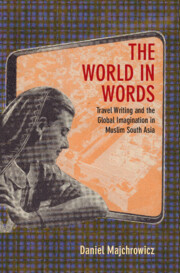4 - Worldly Pleasures
Published online by Cambridge University Press: 28 February 2023
Summary
As noted in the introduction, Khaufnak Dunya was one of renowned Urdu writer and critic Naiyer Masud’s favorite childhood reads. Of it he wrote, “I fell in love with this book. I would read it again and again, and every time I read it, I would discover a new kind of pleasure.” The book left such a deep impression on him that, decades later, he resolved to rediscover it and learn more about its enigmatic author. Eventually he managed to piece together the story. Dr ‘Ali Sabzvari was a Punjabi with an insatiable love for travel and big game hunting. His first trip, in 1899, took him to hunt and trade in East Africa. Later, when he moved to San Francisco to study dentistry, he immediately availed the relative proximity to spend five months hunting in Brazil. On his return to Asia, he traveled, hunted, and traded in Borneo and across India, before settling in Bihar, where he could easily hunt in his leisure time. He wrote at least three travelogues about these journeys, copies of which are today scattered across India and Pakistan. They are not high literature, but they are filled with excitement and astonishment. Masud remembered Sabzvari not for the beauty of his prose or the delicacy of his thought, but for how his writing fired the imagination, and, above all, for the way it evoked ever new kinds of pleasure.
Some of the travel accounts discussed in the previous two chapters also sought to evoke pleasure, but this was only a secondary concern. Chapter 2 showed how princely states used the genre to propose aspirational political visions for their own futures. The last chapter showed how pedagogical travel writing used in colonial schools projected a vision of British colonial modernity. A third strand of travel writing, which emerged in the 1870s, put pleasure at the forefront. Authors often did so explicitly, telling readers that the primary mode of the account would be enjoyment. Examining the period between 1870 and 1935, this chapter argues that this pleasure emerged from these travelogues’ familiar forms and aesthetics, but also because they allowed readers to imagine themselves gaining in respect, intelligence, and wealth while traveling to distant places.
- Type
- Chapter
- Information
- The World in WordsTravel Writing and the Global Imagination in Muslim South Asia, pp. 136 - 156Publisher: Cambridge University PressPrint publication year: 2023

